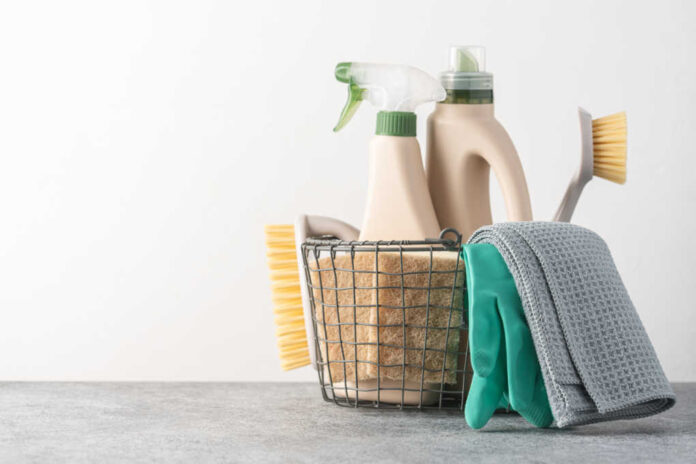
Cleaning is an essential part of maintaining a healthy home.
Unfortunately, many typical household cleaning products contain chemicals that could be hazardous to your health.
People who work as cleaners and spend more time cleaning chemicals are at an increased risk, but even moderate use of standard household products could have a modest impact if handled unsafely.
Hazardous Chemical Ingredients
Cleaning agents have been linked to respiratory trouble, allergies, asthma, and chronic obstructive pulmonary disease (COPD).
Some ingredients in common cleaners are irritants:
- bleach
- hydrochloric acid
- ammonia
- sodium hydroxide
These irritants can cause the onset of asthma and asthma-like symptoms.
Other cleaning ingredients can be classified as sensitizers, which may lead to the development of an allergy through repeated exposure. Common sensitizers in cleaning products include:
- disinfectants
- ammonium compounds
- amine compounds
- fragrances
When these ingredients are mixed into aerosol sprays, they can be easily inhaled and cause respiratory distress.
Long-term use and exposure to these materials can worsen pre-existing conditions or lead to weakened lung function and new respiratory illnesses.
Frequent use of these cleaning ingredients in a home with young children can also put them at risk for asthma and respiratory problems.
Other Health Risks
Some chemicals commonly used for cleaning can be corrosive and cause skin damage or irritation. Be sure to wear gloves and skin-protecting clothing when using cleaning products, and avoid contact with your skin as much as possible. If you come into contact with a harmful chemical, be sure to wash the area immediately with soap and water.
Many of them are very irritating and dangerous if they get into contact with your eyes or if swallowed.
Some cleaning products can emit toxic fumes when heated or mixed with other ingredients, and many of them are flammable. Use caution and read instructions and warnings carefully before using any cleaning product.
Risk Reduction Strategies
Even though some risks are involved, many of these chemical ingredients are very effective cleaners and can’t be avoided entirely, especially when deeper sterilization is required.
To reduce the risk of irritating your lungs or other sensitive organs:
- Wear a mask when using any aerosolized sprays.
- Wear gloves, eye protection, and other skin-protecting clothing.
- Wash your hands thoroughly after using and handling cleaning products, especially before mealtime.
- Know what you are using and how to handle it responsibly.
- Be aware of warnings and cautions, and know what to do if something bad happens.
- Ensure good ventilation when using any cleaning products.
- Wipe off dusty surfaces with a damp rag (simply spraying them might cause these toxins to cling to the dust without removing the dust, and dry dusters can spread the dust into the air and your lungs)
If you notice a product is irritating you somehow, stop using it immediately and look for alternative solutions.
Keeping your living spaces clean is essential but should always be done safely.






















